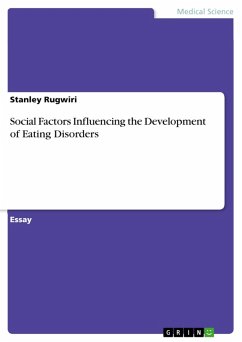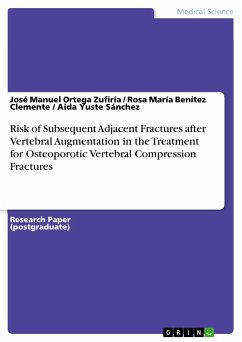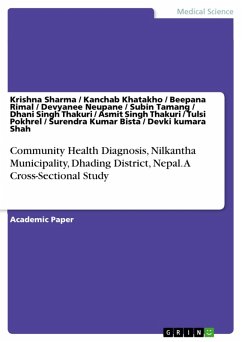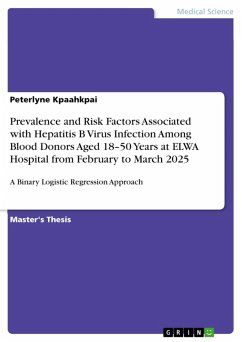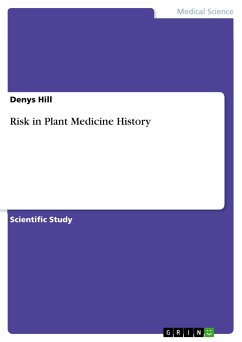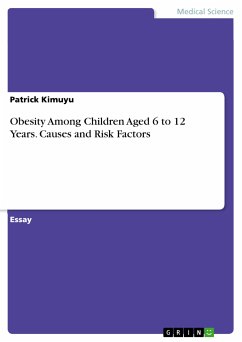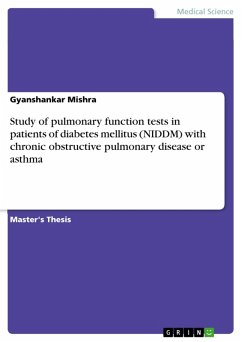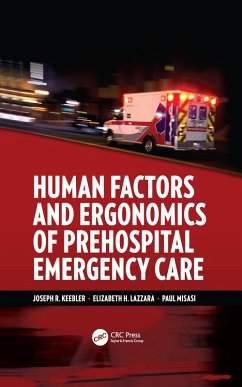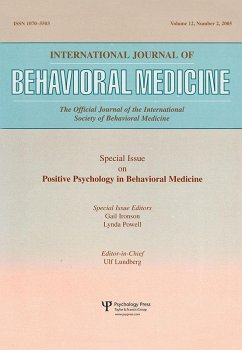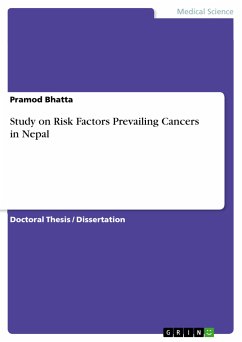
Study on Risk Factors Prevailing Cancers in Nepal (eBook, PDF)
Versandkostenfrei!
Sofort per Download lieferbar
Statt: 52,95 €**
39,99 €
inkl. MwSt. und vom Verlag festgesetzt.
**Preis der gedruckten Ausgabe (Broschiertes Buch)
Alle Infos zum eBook verschenkenWeitere Ausgaben:

PAYBACK Punkte
0 °P sammeln!
Doctoral Thesis / Dissertation from the year 2019 in the subject Medicine - Other, , language: English, abstract: The study's main aim was to investigate the prevailing cancer types and associated risk factors based on the geographical distribution of Hill and Terai of Nepal. Similarly, to identify the stage of cancer patients visiting the hospital and the contribution of other health care systems in cancer care and prevention. Despite various cancer control efforts, cancer cases have been increasing in the developing world like Nepal due to low education, poverty, inadequate health services. ...
Doctoral Thesis / Dissertation from the year 2019 in the subject Medicine - Other, , language: English, abstract: The study's main aim was to investigate the prevailing cancer types and associated risk factors based on the geographical distribution of Hill and Terai of Nepal. Similarly, to identify the stage of cancer patients visiting the hospital and the contribution of other health care systems in cancer care and prevention. Despite various cancer control efforts, cancer cases have been increasing in the developing world like Nepal due to low education, poverty, inadequate health services. Literature also showed that identification of risk factors of cancer, early disease diagnosis and treatment and preventive activity would help lower cancer morbidity and mortality. This non-experimental, cross-sectional, descriptive and exploratory study was based on the pragmatic philosophy with concurrent mixed methods and Bio-psychosocial Model by George L. Engel. The primary quantitative data was collected from the samples of 200 admitted lung and oral cancer patients for a questionnaire survey along with qualitative data of 15 key informants of cancer and Ayurvedic hospitals along with 10 Focus Group Discussions and three case studies of cancer patients. In the study, dependent variables include lung and oral cancer, and independent variables were controlled to the risk behaviour of tobacco smoking, tobacco chewing, including geographical area. Frequency tables and mean values were used to describe the necessary information for analysis, while qualitative data were manually interpreted and presented. Similarly, Regression and Pearson's Chi-square tests were performed to find variable's association and relationship. The study showed more lung cancer patients than oral in Hill whereas more oral than lung cancer patients in Terai. Similarly, significantly high lung cancer cases among smokers and oral cancer in tobacco chewers. Due to less awareness of cancer risk factors, economic condition, geographical situation, health service availability, ignorance and fear of disease diagnosis, nearly 87% of patients visited the hospital at a late stage. A significant number of the cancer patients visited or willing to visit shortly to Ayurvedic or other health systems. Respondents also suggested a research-based separate or integrated treatment approach of cancer Ayurvedic and other health care with conventional treatment. The finding suggests that commitment and services assurance at every level is necessary for cancer care.
Dieser Download kann aus rechtlichen Gründen nur mit Rechnungsadresse in A, B, BG, CY, CZ, D, DK, EW, E, FIN, F, GR, HR, H, IRL, I, LT, L, LR, M, NL, PL, P, R, S, SLO, SK ausgeliefert werden.




